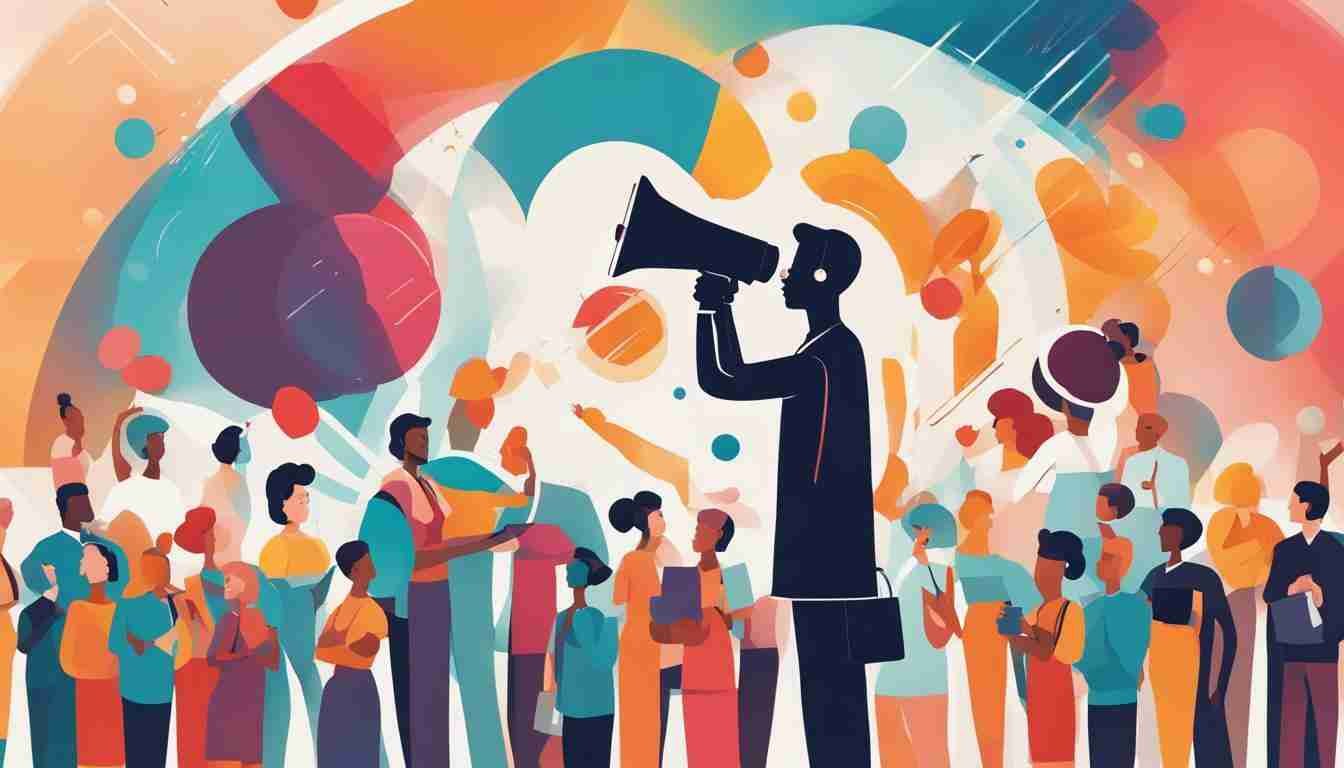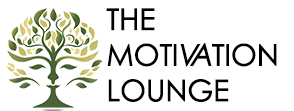Effective communication skills are crucial in personal and professional relationships. Poor communication can lead to misunderstandings and conflicts. On the other hand, mastering communication techniques can enhance connections and build trust. In this article, we will explore the key communication techniques that can help you become a better communicator.
Key Takeaways:
- Effective communication skills are essential in personal and professional relationships.
- Communication techniques can help enhance connections and build trust.
- This article will cover the key communication techniques.
Understanding Verbal and Nonverbal Communication
Effective communication involves not only clear and concise verbal messages but also nonverbal cues that can convey meaning. Verbal communication refers to spoken or written words, while nonverbal communication includes body language, facial expressions, and other gestures that enhance or detract from the message being conveyed.
| Verbal Communication | Nonverbal Communication |
|---|---|
| Verbal communication must be clear, concise and convey the intended meaning. Choose appropriate words, tone, and timing based on the audience. Use active listening to encourage two-way communication. Be aware of cultural and contextual differences in language. | Nonverbal communication can convey attitudes, emotions, and intentions. Pay attention to body language, facial expressions, and gestures that can enhance or contradict verbal messages. Maintain eye contact, use appropriate facial expressions, and avoid distracting gestures. |
Both verbal and nonverbal communication are essential for effective communication. While the words we choose are important, nonverbal cues can provide additional context and meaning. For example, a negative tone of voice or tense posture can undermine a positive message.
Understanding verbal and nonverbal communication can help individuals convey messages effectively and interpret the intended meaning of others. By paying attention to both aspects of communication, individuals can improve their interpersonal skills and build stronger relationships.

The Power of Active Listening
Effective communication is not just about speaking; it’s also about listening. Active listening is a crucial skill that enables individuals to understand and respond appropriately to information received. It involves paying attention to the speaker, understanding their message, and asking appropriate questions to clarify any doubts.
Active listening requires more than just hearing what someone is saying. It involves demonstrating genuine interest in their thoughts and feelings. You must make a conscious effort to understand the speaker’s perspective and acknowledge their emotions. To show active listening, maintain eye contact, avoid interrupting or rushing the speaker, and use verbal and nonverbal cues to demonstrate interest.
Paraphrasing is another critical component of active listening. It involves restating the speaker’s message using your own words to confirm you understood them correctly. Paraphrasing shows you are actively listening and clarifies any misunderstandings that may arise. When paraphrasing, focus on the key points the speaker is making and avoid adding your opinions.
Asking clarifying questions is also essential in active listening. Questions demonstrate your interest and encourage the speaker to elaborate on their ideas. Open-ended questions like “Can you tell me more about that?” or “Can you explain that further?” facilitate a deeper understanding of the speaker’s perspective.
Active listening can build rapport and understanding between individuals, leading to stronger relationships. It is also incredibly useful in conflict resolution as it can diffuse tense situations and demonstrate empathy towards all parties involved. By improving your active listening skills, you can enhance your personal and professional relationships and promote effective communication.

Assertiveness and Communication
Assertiveness is an essential communication skill that allows individuals to express their thoughts and feelings confidently while also respecting the rights and beliefs of others. Assertive communication is crucial in both personal and professional relationships because it helps individuals communicate their needs, boundaries, and opinions effectively without being aggressive or passive.
There are several techniques one can use to become more assertive in their communication, including using “I” statements to express feelings, expressing opinions respectfully, and making direct requests. It’s also important to listen actively to others and validate their feelings while still standing up for oneself.
Developing assertiveness skills takes practice, and it’s essential to find a balance between being too passive or too aggressive. Effective communication and assertiveness can lead to better relationships, higher self-esteem, and improved overall well-being.
It’s worth noting that assertiveness should not be confused with aggression. While assertive communication aims to express opinions and feelings respectfully, aggressive communication aims to control or dominate others, often at the expense of their rights or beliefs.

Assertiveness is a crucial communication skill that allows individuals to express themselves confidently while respecting others.
Empathy in Communication
Empathy is a critical skill in effective communication. It involves putting oneself in another person’s shoes and understanding their perspective and emotions. Demonstrating empathy can help build trust and strengthen relationships, as well as resolve conflicts.
One essential aspect of empathy is active listening. When actively listening, you must give the speaker your full attention and demonstrate that you are present in the moment. This may involve taking notes, nodding, and providing verbal feedback such as “I understand” or “That must have been difficult for you.”
Another way to show empathy is by acknowledging the speaker’s emotions. This involves validating their feelings and letting them know that you understand how they are feeling. For example, if someone is expressing frustration about a situation, you can say, “I can see why you would feel frustrated in that situation.” This validates their emotions and helps them feel heard.
It’s also essential to check your own biases and assumptions when trying to empathize with others. Being aware of your biases and recognizing how they may be influencing your perception can help you better understand someone else’s point of view.
| Benefits of Empathy in Communication |
|---|
| 1. Builds trust and rapport. |
| 2. Helps resolve conflicts. |
| 3. Improves understanding and communication. |
In summary, empathy is a crucial skill for effective communication. By actively listening, acknowledging emotions, and checking biases, you can better understand others’ perspectives and build stronger relationships. Incorporating empathy into your communication skills can be invaluable in both personal and professional settings.

Effective Public Speaking
Public speaking is often considered one of the most intimidating tasks, but with practice and preparation, anyone can become a skilled speaker. Whether giving a presentation at work, delivering a speech at an event, or simply speaking in front of a group of people, there are several techniques that can help improve public speaking skills.
Prepare and Organize
One of the most important aspects of effective public speaking is preparation and organization. Before writing a speech or presentation, it’s important to understand the audience and the purpose of the speech. Research the topic thoroughly and organize the information in a logical and coherent manner. Use clear and concise language, and avoid using jargon or technical terms that may confuse the audience.
Body Language and Delivery
Body language and delivery can greatly impact the success of a speech or presentation. Use confident body language to appear poised and in control, and avoid nervous habits like fidgeting or pacing. Maintaining eye contact with the audience can also help establish a connection and keep their attention. Use vocal variety to add emphasis and maintain interest, and avoid speaking too quickly or too slowly.

Engage the Audience
Engaging the audience is key to a successful speech or presentation. Start with a strong opening that captures their attention and sets the tone for the rest of the speech. Use humor, personal stories, or relevant examples to keep the audience interested and make the speech memorable. Encourage audience participation through questions, polls, or interactive activities.
Overcoming Nervousness
Feeling nervous before a speech or presentation is normal, but there are several strategies to help overcome nervousness. Practice the speech or presentation several times to build confidence and familiarity. Take deep breaths and try visualization techniques to calm nerves. Remember that mistakes happen, and it’s okay to make them. Stay positive and focus on delivering the message effectively.
By implementing these techniques, anyone can improve their public speaking skills and deliver impactful speeches and presentations. Remember to prepare, use confident body language, engage the audience, and overcome nervousness. With practice and perseverance, public speaking can become a valuable skill in both personal and professional contexts.
Conflict Resolution Strategies
Effective communication is vital to building and maintaining positive relationships. However, conflicts may arise from time to time, and handling them appropriately is essential. Conflict resolution involves the ability to manage disagreements and find common ground while preserving relationships. Here are some strategies for resolving conflicts through effective communication:
Active Listening
Active listening is a crucial communication skill that facilitates conflict resolution. When others feel heard and understood, they are more likely to be open to finding a resolution. To demonstrate active listening, maintain eye contact, refrain from interrupting, and rephrase what the other person said to ensure understanding. By showing that you are actively listening, you can create a safe space for constructive conversation.
Empathy
Empathy is the ability to understand and share the feelings of another person. During conflict resolution, demonstrating empathy can help defuse tensions and foster cooperation. To show empathy, validate the other person’s emotions and acknowledge the impact of the situation on them. By doing so, you can create a space for mutual understanding and help prevent future conflicts.
Finding Common Ground
During conflicts, it is essential to find common ground and identify shared goals or interests. By doing so, you can focus on moving forward rather than dwelling on differences. Look for areas where you can agree and work toward a resolution that benefits all parties involved. Avoid focusing on blame or fault and instead shift the focus to finding solutions.
By applying these strategies, you can effectively manage conflicts and preserve relationships. Remember, conflicts are a natural part of any relationship, and how you handle them can make all the difference. By practicing effective communication and conflict resolution skills, you can build stronger, more positive relationships both personally and professionally.

Conclusion
In conclusion, mastering effective communication skills is crucial for building successful personal and professional relationships. By understanding verbal and nonverbal communication, practicing active listening, being assertive yet respectful, showing empathy, improving public speaking skills, and utilizing conflict resolution strategies, individuals can improve their interpersonal skills and enhance their communication abilities.
Continuous development of effective communication skills is essential for personal growth and career success. By applying the techniques discussed in this article, individuals can improve their communication skills and build stronger relationships with colleagues, friends, and family.
Remember, effective communication is not just about speaking, but also about listening and understanding. It requires effort, patience, and empathy. Incorporating these skills into your daily interactions can lead to a more fulfilling and successful life.
So, start practicing and master the art of effective communication skills today to achieve your personal and professional goals!
FAQ
Q: What are effective communication skills?
A: Effective communication skills refer to the ability to convey information and ideas clearly and concisely, while also listening actively and understanding others.
Q: Why are effective communication skills important?
A: Effective communication skills are essential in personal and professional relationships as they facilitate understanding, build rapport, resolve conflicts, and enhance overall collaboration and productivity.
Q: What are some key communication techniques?
A: Some key communication techniques include active listening, clear verbal communication, nonverbal communication, assertiveness, empathy, and effective public speaking.
Q: How can active listening enhance communication?
A: Active listening involves giving full attention to the speaker, maintaining eye contact, paraphrasing to show understanding, and asking clarifying questions. It helps build rapport, foster understanding, and ensure effective communication.
Q: What is the role of assertiveness in communication?
A: Assertiveness is about expressing opinions and needs confidently while respecting others’ boundaries. It allows for clear and direct communication without being aggressive or passive.
Q: How can empathy improve communication?
A: Empathy involves understanding and acknowledging the emotions of others. By showing empathy through active listening and validating emotions, communication becomes more understanding, compassionate, and effective.
Q: How can I improve my public speaking skills?
A: Improving public speaking skills can be achieved through techniques such as preparation and organization of speeches, using effective body language, engaging the audience, and managing nervousness.
Q: What are some conflict resolution strategies?
A: Conflict resolution strategies include active listening, empathy, finding common ground, and seeking mutually beneficial solutions. These techniques help manage conflicts in personal and professional settings.
Q: Why should I focus on developing effective communication skills?
A: Developing effective communication skills is crucial for fostering positive relationships, resolving conflicts, and achieving success in personal and professional endeavors. Continuous improvement in communication skills enhances overall interpersonal skills and leads to better outcomes.





